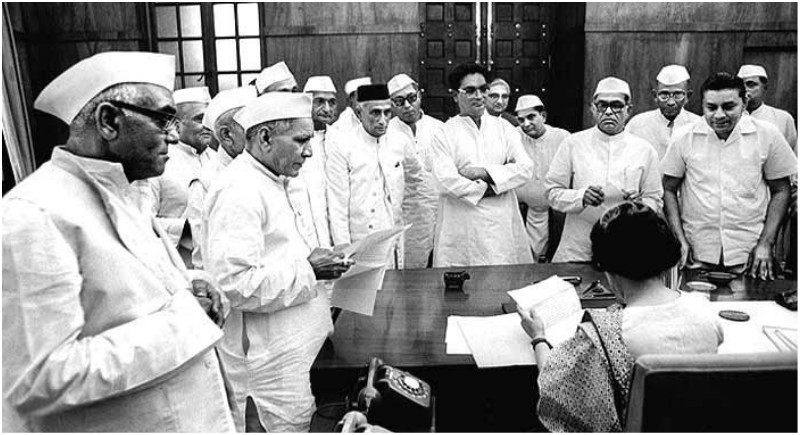Recalling 43rd anniversary of the darkest chapter of transforming India into ‘Dynasty Democracy’: The Emergency
New Delhi, June 26: PM Modi, recalling the darkest chapter of Independent Indian History ‘The Emergency’ said that India remembers the Emergency as a dark period during which every institution was subverted and an atmosphere of fear was created. Not only people but also ideas and artistic freedom were held hostage to power politics.

The emergency was the period when the whole Indian politics was eclipsed with the dictatorship of Former PM Indira Gandhi who never abrogated the Constitution. She used a republican Constitution to transform democracy into a dictatorship.
In a series of tweets, Modi said, not only people but also ideas and artistic freedom were held hostage to power politics.
Prime Minister saluted the courage of all those great women and men who steadfastly resisted the emergency, which was imposed 43 years ago and said their struggles ensured people power prevailed over authoritarianism and the stifling of civil liberties.
He said no force can ever trample the basic tenets of Constitution and appealed to always work to make Indian democratic ethos stronger. He said writing, debating, deliberating, questioning are vital aspects of Indian democracy.
History of the darkest chapter……
"The Emergency" refers to a 21-month period from 1975 to 1977 when Prime Minister Indira Gandhi had a state of emergency declared across the country. Officially issued by President Fakhruddin Ali Ahmed under Article 352 of the Constitution because of the prevailing "internal disturbance", the Emergency was in effect from 25 June 1975 until its withdrawal on 21 March 1977.
The order bestowed upon the Prime Minister the authority to rule by decree, allowing elections to be suspended and civil liberties to be curbed. For much of the Emergency, most of Gandhi's political opponents were imprisoned and the press was censored. Several other human rights violations were reported from the time, including a forced mass-sterilization campaign spearheaded by Sanjay Gandhi, the Prime Minister's son.
Invoking article 352 of the Indian Constitution, Gandhi granted herself extraordinary powers and launched a massive crackdown on civil liberties and political opposition. The Government used police forces across the country to place thousands of protestors and strike leaders under preventive detention. Vijayaraje Scindia, Jayaprakash Narayan, Raj Narain, Morarji Desai, Charan Singh, Jivatram Kripalani, Atal Bihari Vajpayee, Lal Krishna Advani, Arun Jaitley, Satyendra Narayan Sinha, Gayatri Devi, the dowager queen of Jaipur and other protest leaders were immediately arrested. Organisations like the Rashtriya Swayamsevak Sangh (RSS) and Jamaat-e-Islami along with some political parties were banned. Numerous Communist leaders were arrested along with many others involved with their party. Congress leaders who dissented the Emergency declaration and amendment to the constitution such as Mohan Dharia and Chandra Shekhar resigned their government and party positions and were arrested and placed under detention,
Correspondents of foreign media were expelled. Severe censorship was imposed on local and National Media. The Home Ministry told Parliament in May 1976 that 7,000 persons had been held for circulating clandestine literature opposing the Emergency.
Senior party leaders and Union ministers will hold press conferences and address seminars and hall meeting programmes on Emergency.
BJP spokesperson Anil Baluni said press conferences and seminars will be organized at nearly 22 places across the country to make the new generation aware about how the Congress had murdered democracy by imposing Emergency.
Baluni said such mass awareness is needed so that no one could dare to impose Emergency in the future. He said the idea is to highlight how the Emergency was the darkest period of independent India.
The chapter will continue confining the words to elaborate the incidents.